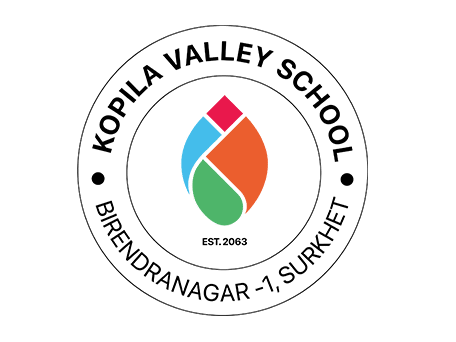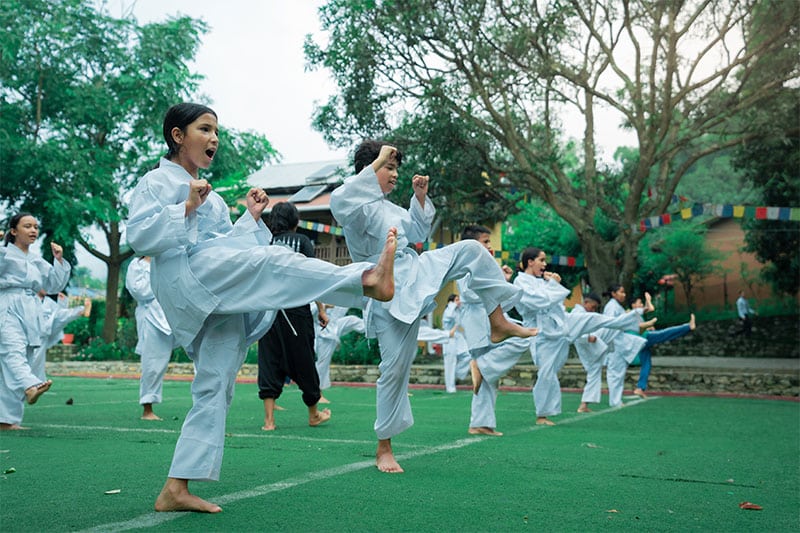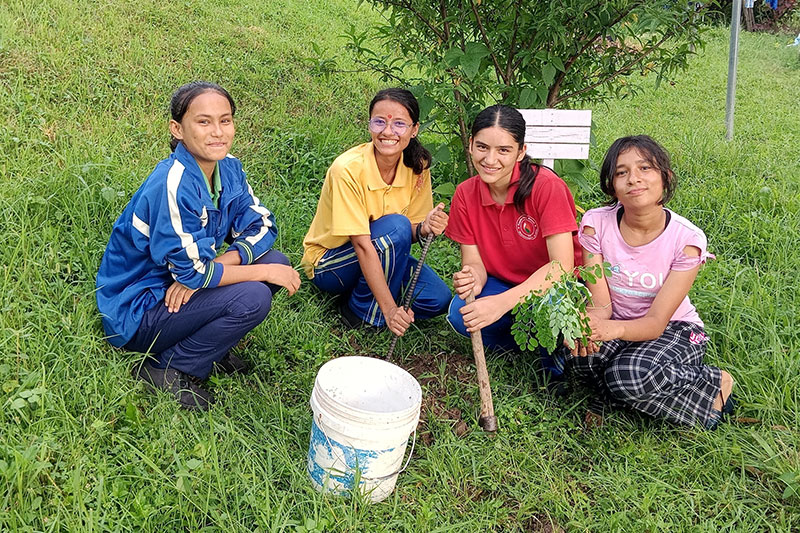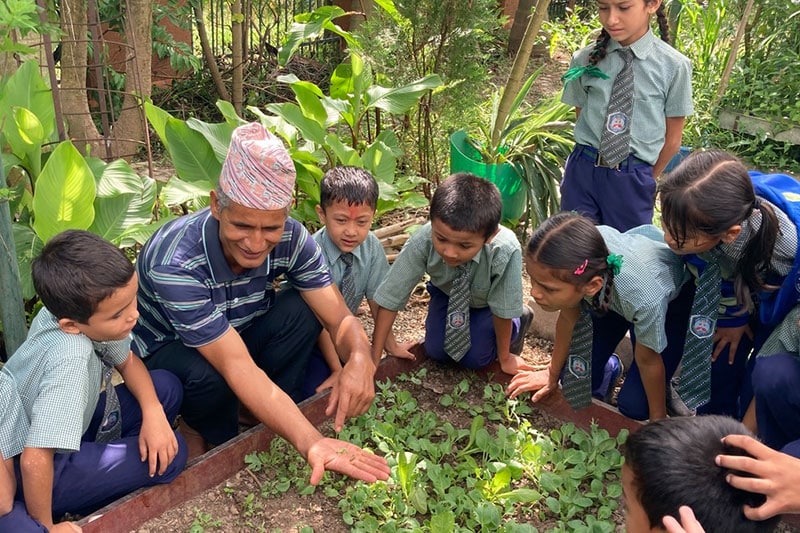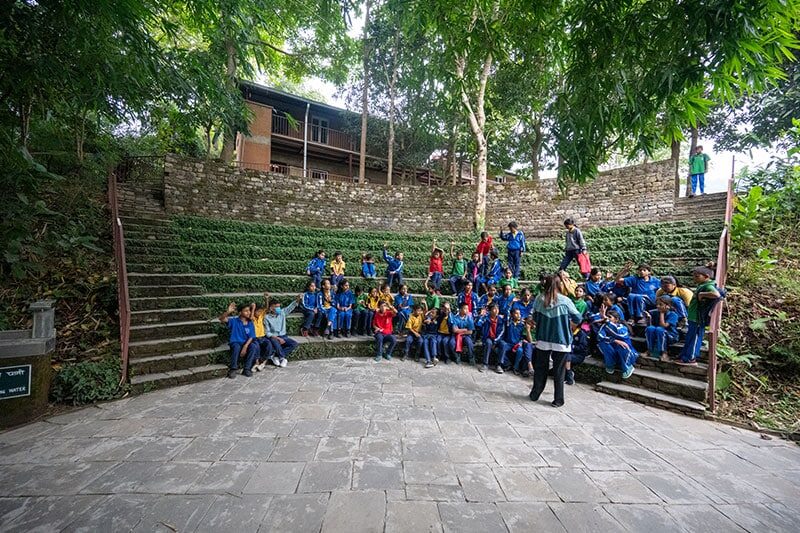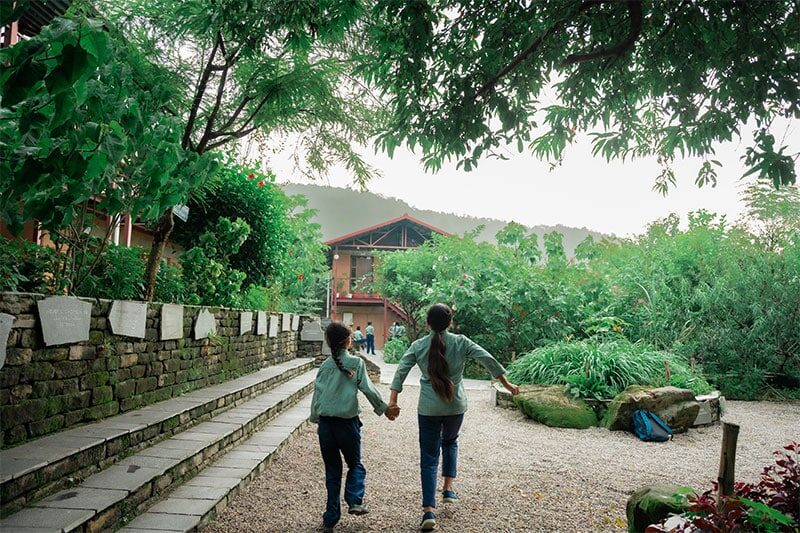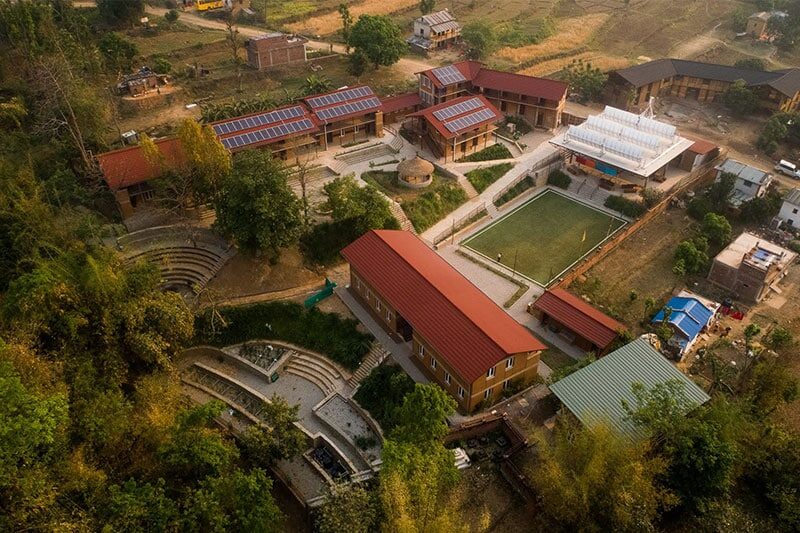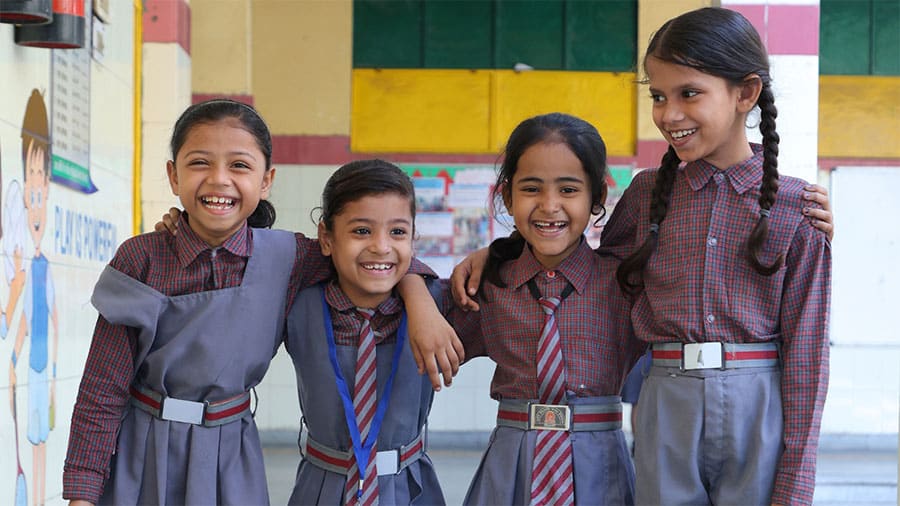Environmental action - 2025 Finalist
Kopila Valley School
Nepal
The Nepalese school that has become a living laboratory empowering students with climate literacy
Kopila Valley School, an independent primary and secondary non-profit school in Birendranagar, Surkhet, Karnali, Nepal, has integrated environmental sustainability as part of its educational model through its Green School Campus, a living laboratory providing high-quality academic and environmental education to more than 400 of the region’s most vulnerable children. Situated in the Karnali region, where monsoons, landslides, floods, and deforestation threaten the community’s livelihoods, many marginalised families are also facing poverty, food insecurity and lack of access to basic healthcare.
With a keen understanding that education alone was not enough to change outcomes for local communities, the school built Nepal’s greenest campus in 2019. Here, children become a part of a living classroom where they don’t just learn about sustainability; they live it, practising waste management, recycling, regenerative agriculture, aquaponics, and water conservation. They become leaders who share their knowledge with families and the broader community, creating a ripple effect of environmental awareness and action. The full-service community school model provides daily nutritious meals sourced from its organic farm, basic healthcare, and mental health support to ensure that students are nourished, healthy, and ready to learn.
Building a sustainable school campus where student-led environmental initiatives are prioritised as part of its educational model has resulted in 100% of students graduating with climate literacy and sustainability, a 95% pass rate in the national 10th grade school exit exam, and 63% of students pursuing higher education. Over 150 students participate in weekly gardening classes, learning regenerative farming, soil conservation, and sustainable food production. The school partners with 22 local female farmers to strengthen food security in the region, and over 500 fresh, locally sourced meals are served to students and staff daily to address malnutrition. The school also places high value on gender equality, with more than 50% of the student body being female, and regular community workshops on menstrual health, gender-based violence prevention, and eco-friendly menstrual waste disposal practices are led by female students. A student-led zero-waste initiative has eliminated single-use plastics and achieved a 91% landfill diversion rate, and 100% of graduates have participated in a climate action initiative during or after their school years.
The success of the open source model has seen educators, school management teams, community leaders, and government officials visit the school to learn from and adopt practices in both theory and physical design, and the model has influenced the national curriculum development committee, which has integrated elements of the approach into its work. Other regional schools, inspired by the sustainability work being done, have also adopted green practices.
Through quality education underpinned by environmental action, the school is preparing the next generation of climate problem-solvers to lead Nepal toward a more sustainable future.
